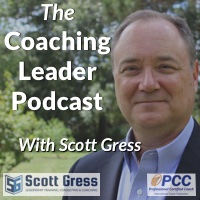

Everyone seems to want more leaders but can’t find them. Is this a normal problem or is there something else that gets in the way? In this series of blog post we’ll examine the headwinds that make it so hard to raise up new leaders. Then follow that up with a series on proactive strategies.
No doubt someone taught you not to point. It’s not polite. Yet that is the first instinct when it comes to why we experience headwinds in growing people. If people aren’t growing, we “point” the blame on them. Whether the growing has to do with growing disciples or developing leaders or helping others to grow, often our instinctive, default reaction as to why it isn’t happening is to say it’s their fault.
Sure, the person who is to grow has to “own” their own development. Yet there can also be other significant reasons to explain why nothing seems to be happening. So back to it not being polite to point, do you remember the sentence that often comes next? “There’s always three fingers pointing back at YOU!”
Yes, an often ignored headwind in growing people is not paying enough attention to how you yourself get in the way of growing people.
The first headwind is that if you are in a position of responsibility, (whatever the context whether in a business or in the church or elsewhere) it probably says a lot about your talent and initiative. You likely did a lot to get there. Don’t get me wrong, sure there were numerous people who encouraged you. There were probably teachers who affirmed you, parents who modeled faithfulness, pastors who were consistent in their care and others who taught you lessons if you were looking and listening. Yet very few of us had someone who regularly engaged with us intentionally in a structured way for our own personal development.
Many of us were self starters who more often than not initiated our own learning and growth. (Never mind our motives.) We went to class, did the outside reading, tracked down someone to ask questions, stepped forward to take responsibility and learned by our mistakes. Along the way there may have been a mentor or helper who gave suggestions, introduced us to someone or made a call for us. But we had to walk through the door of that opportunity on our own and we did it.
So when we look at others and wonder why they aren’t stepping up we shake our heads and don’t get it. We think, “I stepped up, now it’s up for them.” Or “I took responsibility so why don’t they do the same?” Then we complain, “no one wants to take responsibility for _____.” (The blank may be: the team, the program, the committee, the annual fund raiser, the church, etc.) So we point the finger at them and identify them as the “problem.”
But the real problem is with us. Or more precisely it is with our lack of understanding as to how people really grow as people, leaders and disciples. A rare few talented and motivated people take the initiative just like you did. Most others need more active, hands on, structured help. People development, whether as a leader or a disciple of Jesus, happens within the context of a relationship and a responsibility. And by the way, merely inviting them to take the jump from where they are all the way to leadership is not the hands on help we are talking about.
To assume people will take the initiative on their own is a blindspot. It is a headwind. It is one of the primary reasons why we are always lamenting that we don’t have enough leaders. If we're honest, the problem is with us and what we assume is the way that people become leaders. We further assume that either they don’t need any help or support by us or we downplay or minimize by saying we don’t have much to give to them. This is the kind of headwind that powerfully but invisibly gets in the way.
What makes matters worse is that when we do attempt to be more active in helping people grow we don’t have a lot of examples from our own experience to draw upon. Sure we have had parents, teachers, coaches, pastors and even bosses and vicarage supervisors. But many of those are examples of what not to do. Or they provided no significant modeling for us to follow. So our concepts of how to do it differently is thin. It is a dilemma. It is a headwind to growing people.
If you continue to point your finger and blame others for why they aren’t growing (as disciples and/or leaders) then it’s time to notice that you have three fingers pointing back at you. So ask yourself:
- What are you assuming about them?
- What are you assuming about you?
- What are you assuming about how people grow as disciples and leaders?
- How will you check your assumptions?
- What will you now do differently?
Rev. Scott Gress is believes in Growing People for Ministry by focussing on leadership, discipleship and teamwork. Contact Scott if you are interested in him working with you or your church. A free 30 minutes sample session is available to explore how you might work best together. The Coaching Leader Podcast is also available on iTunes and his YouTube page. You can contact Scott through email scottgress@me.com or his blog page scottgress.com or at 561-542-4472
"Growing People for Ministry" Leadership + Discipleship + Teamwork
Check out the: Coaching Leader Podcast!

